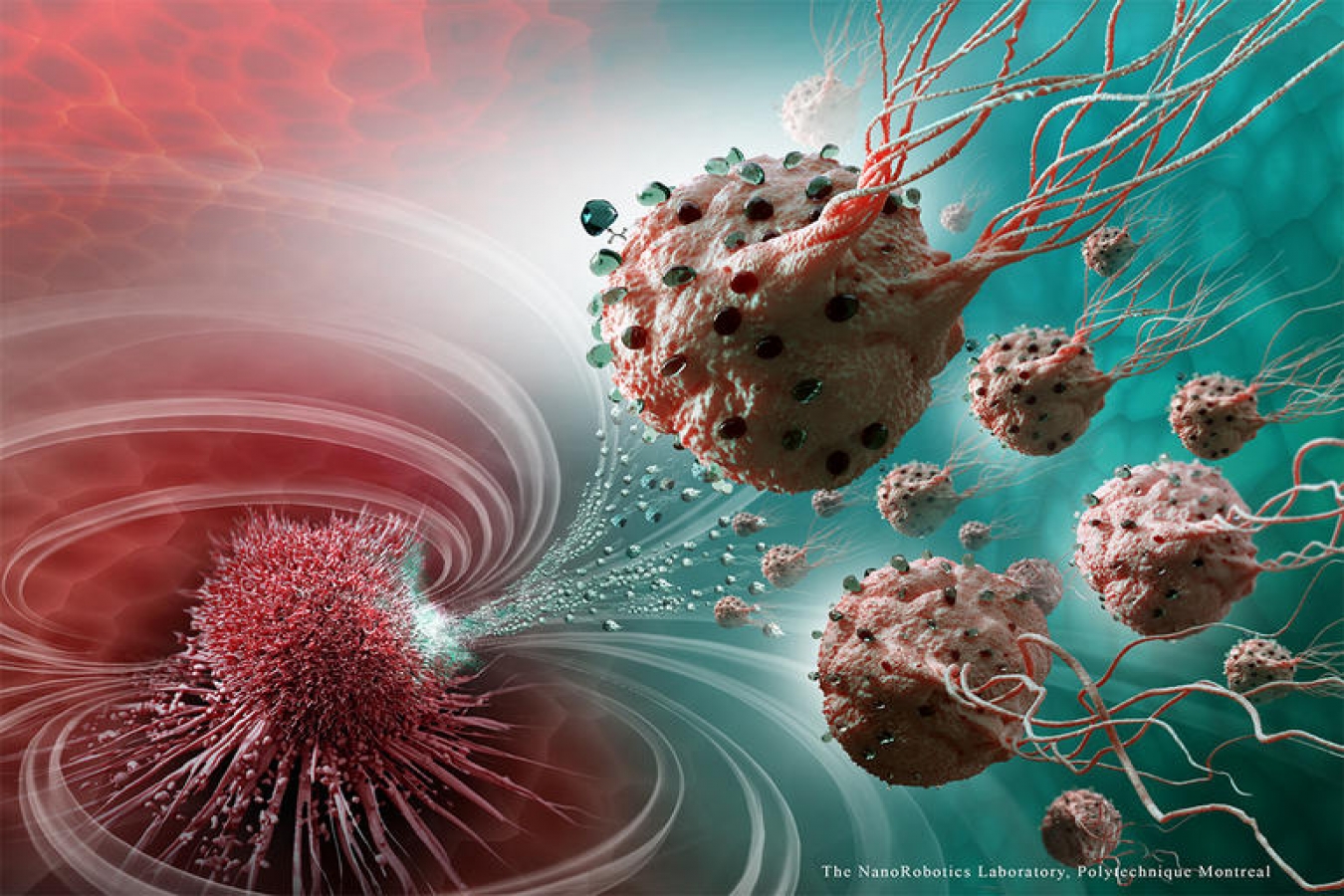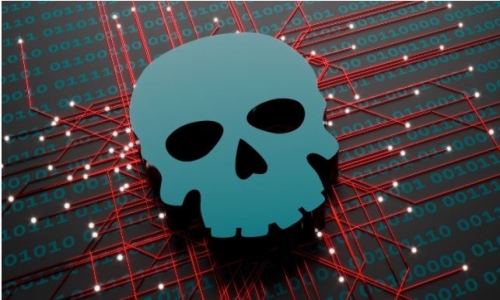


 5:40:47
5:40:47  2019-07-04
2019-07-04  904
904

The ability to program living cells to behave in specific ways under certain conditions is creating new opportunities in medicine. A recent mouse study in which researchers programmed bacteria to help fight cancer is an example.
Some tumors thrive and spread because their cells send out a "don't eat me" signal that makes the immune system leave them alone. Tumor cells that don't send the signal are vulnerable to macrophages and other immune cells that can engulf and digest them.
Now, scientists from Columbia University in the city of New York have shown that it is possible to program bacteria to switch off the don't eat me signal and induce an anti-tumor immune response.
The approach is an example of synthetic biology, an emerging field in which medical treatments promise to be more effective and specific than many molecular methods.
In a recent Nature Medicine paper, the researchers describe how they programmed bacteria and used them to shrink tumors and increase survival in a mouse model of lymphoma.
They saw that the treatment not only shrank the tumors that they injected, but that distant, secondary tumors, or metastases, also responded.
"Seeing untreated tumors respond alongside treatment of primary lesions was an unexpected discovery," says co-senior author Tal Danino, an assistant professor of biomedical engineering at Columbia University.
Example of abscopal effect
Danino states that what they witnessed was the first demonstration of an "abscopal effect" in cancer treatment that uses bacteria.
"This means," he adds, "that we'll be able to engineer bacteria to prime tumors locally, and then stimulate the immune system to seek out tumors and metastases that are too small to be detected with imaging or other approaches."
In cancer therapy, the abscopal effect is the ability to provoke an anti-tumor response that destroys cancer cells far away from the primary target.
Cells that send don't eat me signals are common not only in tumors but also in healthy tissue. This presents a challenge to developers of immunotherapies that target the signal.
Danino and colleagues met this challenge by programming the bacteria so that they only released their signal-silencing payload when they could sense that they were within the "tumor microenvironment."
E. coli with encoded nanobodies
The payload itself was in the form of "an encoded nanobody," and the bacterium that they used was a "non-pathogenic Escherichia coli strain."
In tumors, E. coli bacteria proliferate in necrotic cores, or pockets of dying cells.
The team programmed the bacteria to be quorum-sensing, meaning that when they reached a certain population size, they died and released their payload of encoded nanobodies.
This strategy stopped the bacteria from penetrating other tissues and silencing the don't eat me signals in their cells. However, it also left enough bacterial cells to start a new population, setting up repeating cycles of drug delivery in the tumor.
The team had already demonstrated such a drug delivery strategy in earlier work.
In the new study, they showed that it can also selectively switch off don't eat me signals in cancer cells by targeting CD47, the protein that sends the signal.
Priming tumor-infiltrating T cells
The team suggests that the treatment works because it does two things. First, the presence of live bacteria induces local inflammation in the tumor. This summons the immune system.
The second thing that the treatment does is trigger immune cells, such as macrophages, to ingest the tumor cells because it switches off their CD47 don't eat me signal. In turn, this immune response primes "tumor-infiltrating T cells" that then migrate to distant metastases.
The researchers suggest that the findings are "proof-of-concept for an abscopal effect induced by an engineered bacterial immunotherapy," and conclude:
"Thus, engineered bacteria may be used for safe and local delivery of immunotherapeutic payloads leading to systemic anti-tumor immunity."
They are already testing the safety and effectiveness of the method with other types of cancer in mice. After that, they hope to proceed to clinical trials in humans.
Reality Of Islam |
|

This is the

A computer

Auburn Univ

Poisoning i
 9:3:43
9:3:43
 2018-11-05
2018-11-05
10 benefits of Marriage in Islam
 7:5:22
7:5:22
 2019-04-08
2019-04-08
benefits of reciting surat yunus, hud &
 9:45:7
9:45:7
 2018-12-24
2018-12-24
advantages & disadvantages of divorce
 11:35:12
11:35:12
 2018-06-10
2018-06-10
 6:0:51
6:0:51
 2018-10-16
2018-10-16
 2:42:26
2:42:26
 2023-02-02
2023-02-02
 9:30:2
9:30:2
 2021-11-12
2021-11-12
 7:0:55
7:0:55
 2022-05-17
2022-05-17
 2:33:4
2:33:4
 2023-02-15
2023-02-15
 8:19:41
8:19:41
 2018-06-21
2018-06-21
 8:25:12
8:25:12
 2022-03-09
2022-03-09
 4:2:19
4:2:19
 2022-10-10
2022-10-10
 5:41:46
5:41:46
 2023-03-18
2023-03-18
| LATEST |